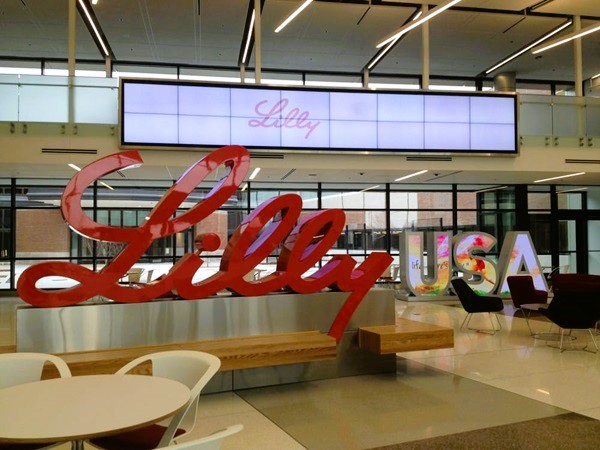In a strategic move aimed at bolstering its presence in Europe and addressing global supply chain vulnerabilities, U.S. pharmaceutical giant Eli Lilly has unveiled plans to construct a state-of-the-art production plant in the town of Alzey, located in western Germany. Sources close to the matter revealed that the company is set to invest a staggering 2 billion euros ($2.17 billion) in this ambitious project.
The new facility, marking Lilly’s maiden major production complex in Germany, comes at a time when pharmaceutical companies are reevaluating their manufacturing strategies in response to increased political pressure and the lessons learned from the challenges posed by the COVID-19 pandemic on global supply chains. The move is expected to create over 1,000 jobs, with additional positive effects on sub-contractors and suppliers in the region.
While Lilly has not officially commented on the plans, news conferences have been scheduled in Alzey and Berlin for Friday, where more details are anticipated to be revealed. The company, which has been operating in Germany since 1960, already has a significant presence in the country with 1,000 employees involved in various areas such as development, distribution, and marketing.
The investment comes as Eli Lilly experiences surging demand for its diabetes drug, Mounjaro. Insiders familiar with the matter have indicated that the new site will manufacture diabetes drugs, with potential applications in treating obesity. The Mounjaro injection, which has gained attention for off-label use in weight loss, was recently cleared for that additional use in the United States under the new brand name Zepbound.
The town of Alzey, strategically located within an hour’s drive of major pharmaceutical and chemical industry players like Boehringer Ingelheim, BioNTech, and BASF, is poised to benefit from this significant development. Observers believe that the move reflects positively on the German government’s efforts to showcase the country as an attractive manufacturing location despite challenges such as soaring energy prices.
The fully-funded project by Eli Lilly is a departure from recent foreign investments in Germany that often involved massive public subsidies. The U.S. company’s commitment to investing in Germany without such financial incentives could be seen as a positive story for the government.
Eli Lilly’s expansion plans in Germany align with its broader global strategy. Major production sites outside the U.S. are currently located in Ireland, France, Spain, Italy, and China. The German project adds to the company’s ongoing expansion investments, with more than $8 billion earmarked for Indiana, North Carolina, and Limerick, Ireland over the next several years.
In a statement, Eli Lilly announced that it would unveil “far-reaching investment plans” at the upcoming news conference, where Germany’s economy and health ministers are expected to be in attendance.
Eli Lilly’s success with Mounjaro has been a significant driver of its financial performance, contributing to a 37% gain in third-quarter revenues, reaching $9.5 billion and surpassing Wall Street estimates. The company’s market value has surged to around $580 billion, marking a remarkable 65% increase so far this year.
Apart from its focus on diabetes drugs, Eli Lilly is also at the forefront of the race to develop treatments for Alzheimer’s disease. The company anticipates a decision from the U.S. Food and Drug Administration on its new Alzheimer’s drug, donanemab, in the first quarter of the upcoming year, with submissions to other global regulators already underway.
As Eli Lilly and Danish rival Novo Nordisk compete to capture a share of the estimated $100 billion global market for anti-obesity treatments, the pharmaceutical giant’s investment in Germany underscores its commitment to innovation and strategic growth in key markets.
(Source: Reuters)









